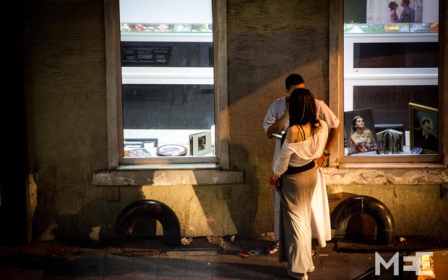Kuwait overturns law criminalising 'imitation of opposite sex'

Kuwait's constitutional court on Wednesday overturned a law that criminalises "imitation of the opposite sex", in a move Amnesty International said was a breakthrough for transgender rights in the region.
Kuwaiti lawyer Ali al-Aryan, who filed a lawsuit to overturn article 198 of the penal code two years ago, confirmed that the law had been repealed, and said it had violated personal freedoms, which are enshrined in the constitution.
"The law was overly vague and broad, and we based our defence on the existence of medical and constitutional foundations, as there are hormonal as well as psychological contributors," he told AFP.
Parliamentarian Osama al-Munawer said in a Twitter post after Wednesday's ruling that another amendment would be sought to address "shortcomings in the legislative drafting", according to Reuters.
Amnesty International welcomed the court's decision, saying it marked "a major breakthrough" for transgender rights in the region.
"Article 198 was deeply discriminatory, overly vague and never should have been accepted into law in the first place," its Middle East and North Africa deputy director Lynn Maalouf said in a statement.
She said the Kuwaiti authorities "must also immediately halt arbitrary arrests of transgender people and drop all charges and convictions brought against them under this transphobic law".
Maalouf also called for the release of those "unjustly imprisoned", including Maha al-Mutairi, who was sentenced last year to two years in prison for being transgender, among other charges.
Mutairi, 40, had been arrested several times before on the same grounds, her lawyer, Ibtissam al-Enezi, told AFP at the time, but added that the latest conviction - which included "misusing phone communication" - had been by far "the harshest".
Degrading and humiliating treatment
In 2012, Human Rights Watch (HRW) documented the negative effects of article 198 on the lives of transgender women in Kuwait, who reported multiple forms of abuse at the hands of the police while in detention.
They described degrading and humiliating treatment, such as being forced to strip and parade around police stations, being forced to dance for officers, sexual humiliation, verbal taunts and intimidation, solitary confinement, and emotional and physical abuse that could amount to torture.
Calling for Mutairi's release last year, HRW cited article 36 of Kuwait’s constitution, arguing that it guaranteed freedom of opinion and expression.
'Mutairi’s story is one of many horrific accounts by transgender Kuwaitis whose only crime is expressing themselves publicly'
- Rasha Younes, Human Rights Watch
"The International Covenant on Civil and Political Rights (ICCPR), which Kuwait has ratified, also guarantees the right to freedom of expression and requires that any restrictions 'must be constructed with care', ensure that they do not stifle freedom of expression in practice and should not provide for 'excessively punitive measures and penalties',” HRW said.
"The United Nations Human Rights Committee, which monitors compliance with the ICCPR, has made clear that the covenant prohibits discrimination based on sexual orientation in upholding any of the rights protected by the treaty. As a state party to the ICCPR and the Arab Charter on Human Rights, Kuwait is required to protect the rights to freedom of opinion and expression, including for transgender people."
“Mutairi’s story is one of many horrific accounts by transgender Kuwaitis whose only crime is expressing themselves publicly,” said Rasha Younes, lesbian, gay, bisexual and transgender (LGBT) rights researcher at HRW. “Kuwait should immediately release Mutairi, investigate her allegations of sexual violence in detention and end its criminalisation and harassment of transgender people.”
In 2018, Oman amended its penal code to punish a man who "publicly appears in the likeness of women in his dress or guise" with imprisonment of between one month and a year, along with a fine.
Middle East Eye delivers independent and unrivalled coverage and analysis of the Middle East, North Africa and beyond. To learn more about republishing this content and the associated fees, please fill out this form. More about MEE can be found here.





